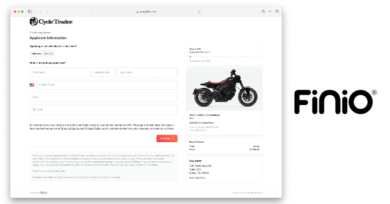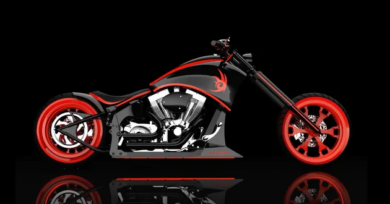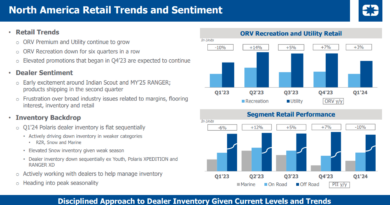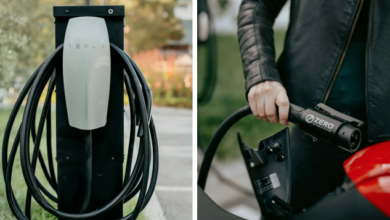Jul. 13, 2009 – The best bold ideas
By Liz Walz
Contributing writer
MOON TOWNSHIP, Penn. — From the outside, West Hills Honda looks like your average dealership. The four-year-old, one-location business sits in a rather plain 10,000-square-foot facility on a side street of a Pittsburgh suburb. But inside is a virtual innovation factory.
When West Hills Honda applied for Powersports Business’ Bold Ideas Contest, its application included three examples of recently launched initiatives, and upon visiting the dealership to interview its team, we learned of several more. What makes this business stand out isn’t the daring nature of any single initiative, but rather the bottom-up culture that spawns such creativity.
“Most of our good ideas have come from the employees,” said West Hills Honda President and General Manager John Bergman. “They know the industry and the riders.”
Businesses that seek employee feedback, challenge employees to reach for performance goals and encourage them to try new ideas will always see a benefit. But in today’s economy, it can make the difference between survival and bankruptcy. That’s why Powersports Business chose West Hills Honda as the winner of its Bold Ideas Contest.
The contest was created in an effort to drive best business practices throughout the industry, and this dealership is a prime example of the kind of culture powersports companies need to embrace to foster such practices. Those that do have a better shot at not only enduring these challenging times, but taking advantage of the recovery to come.
A different start
West Hills Honda has been different from the beginning. That was one of Bergman’s goals when he launched the company.
He wanted the dealership to be customer-focused, providing an environment in which enthusiasts could be comfortable rather than intimidated. And he knew the key to achieving that goal lay in his employees.
“If an employee is unhappy or afraid to make a decision, they can’t make a customer feel comfortable,” he said.
Bergman began by hiring employees who were self-starters with a customer focus and a passion for powersports. Then he created a planning process through which he sits down in November with each manager and develops mutually agreed-upon monthly goals and objectives for the year ahead. Each has financial incentives that are tied to meeting those objectives. In weekly meetings throughout the year, objectives are adjusted as needed. Otherwise, he lets the managers manage.
“You have to trust your employees,” he said. “If somebody has a customer with an issue, they have the authority to make a decision. If they need to make an adjustment somewhere to go the extra mile, they can do it without asking.”
The worst thing management can do is criticize an employee’s idea, says Bergman. Instead, he encourages them to try it out. If it doesn’t go right, the team discusses it and corrects it.
That willingness to go out on a limb for his employees is another thing that makes West Hills Honda different. One such example is Parts Manager Matt Houy. He started at the dealership as a teenager when his uncle, then parts manager, recruited him. When his uncle retired, Houy, only 20 at the time, petitioned to take over as parts manager and was given the opportunity.
“Just because someone is inexperienced or young doesn’t mean they can’t do the job,” Bergman said. “Matt was here for two years before he switched over to manager. He’s very mature. He has guys older than him reporting to him, and he does a great job. He’s an excellent salesperson and full of ideas.”
That investment is paying off for the dealership. Not only have the displays and inventory turns improved, but parts sales also have gone up 20 percent during the past two years.
West Hills Honda also stands out for the cross-training it provides employees. Not only does this give the small team added flexibility, it helps them provide better customer satisfaction, Bergman explains.
“Eric Ierardo has excellent people skills, which is unusual for a tech,” he said. “We often bring him out onto the floor to answer questions, and he works at the parts counter sometimes. That’s what I want: People to come in and want to talk to Eric.”
Added together, this has created a team of employees with a sense of ownership in the business. Controller Kimberlee Love, for example, often attends local fairs and events to promote the business on the weekends. Sales Manager Bob Sherbondy and Ierardo go to used powersports equipment auctions on Wednesdays, which is their day off in the winter. And on a recent Tuesday, Sherbondy had just held his own customer appreciation event over the weekend at an ATV park, offering the dozens of customers who turned out hot dogs and demo rides.
“The good employees are good because they like being here,” Bergman said. “It goes in a circle. If you value them, they’ll value you back. When I’m not here, I don’t have to worry. I know they’ll make the right decisions, and if they don’t, we’ll get through it and do it right the next time.”
West Hills Honda is also different from some dealerships in that it has had a frugal approach to doing business from day one. Bergman explains that when he launched the business in 2005, the motorcycle business was just beginning to decline following eight to 10 years of growth.
“Dealerships that were established and riding that wave may have become complacent,” he said. “We were already focused on growing market share in a declining market. We were already in shape and fit from day one. It’s just the culture.”
Knowing that, it shouldn’t be surprising to hear that Love and Bob Hersch, service manager and treasurer, built the office desks themselves. Or that F&I Manager Andy Pampena and Sherbondy created their own window washing system this summer to clean the windows during a slow day in the showroom.
“The employees all think about the store,” said Bergman. “It’s part of their life. The team here is like a family.”
Real results
That family environment has paid off in more than one way.
The company has reported double digit growth every year since its inception, despite challenging market conditions.
In addition, customer and employee satisfaction is high, as evidenced by the percentage of repeat and referral business the business does — about 40-50 percent — and the ease with which it has retained its core staff.
Employee retention is an important part of customer satisfaction, points out Sherbondy. Before he began frequenting West Hills Honda, he was amazed at the employee turnover of other dealerships from which he purchased.
“I would get upset,” he said. “This is a place where I had bought a few ATVs, and they didn’t know my name.”
Finally, because the West Hills Honda team is personally invested in the business, they are always thinking up new ideas that boost the company’s exposure, save it money and help it improve the customer experience. (See sidebars)
The lesson Bergman has learned along the way is to involve his team in even more decisions about the business. While he used to interview and hire new employees on his own, for example, now he involves Love and the department manager in the interview. Then, he takes the job candidate around the store to talk to all of the employees and get a group consensus.
“They see things I don’t see,” he said. “They have to work here in this environment. I made my mistakes in the beginning with employees that didn’t work out.”
In the end, West Hills Honda’s success comes down to its ability to hire the right employees, motivate them and then get out of their way.
“It’s my job to remove barriers,” Bergman said. “Let the employees do their jobs, and I’ll remove the barriers.”




